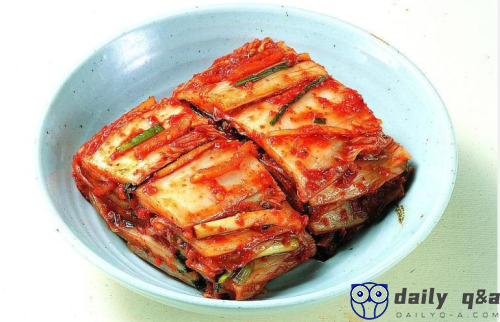For Koreans, kimchi is not only a dish, but also a manifestation of strength and culture. There are many expositions, exhibitions and seminars on kimchi in South Korea. The largest one was the "pickle with love" activity held in Seoul in November 2005 for low-income families and social welfare institutions. 6000 volunteers participated in the activity, and 40000 cabbages were used at one time.

Pickles are also a variety of ways to eat, there are direct to eat, but also baked to eat, old pickles are made into soup. Located in Seoul's Mingdong, "Sanjin" canteen is a famous Korean specialty store for its pickled pork wrapped in pickles. In the dining room, the pork is wrapped in pickles and fermented in jars for about a week before being taken out for cooking.
In many traditional Korean families, a jar of pickle sauce can even be passed down to nine generations: from great grandmother to grandmother, from grandmother to mother, from mother to daughter-in-law, and then down. Therefore, the real Korean kimchi is known as "the affection pickled with maternal love". The longer the time goes on, the stronger the flavor becomes, so that the Korean people call the good taste of kimchi as "Mom" The taste of "the taste of the". Perhaps it is out of the love and gratitude to their mother that South Korean people call kimchi "filial product".
Kimchi in the daily life of South Korean people has been far beyond a dish, but sublimated into a unique tradition and culture, has become an indispensable part of Korean life.
Copyright notice
This article only represents the author's point of view, not the standpoint of this station.
This article is authorized by the author and cannot be reproduced without permission.